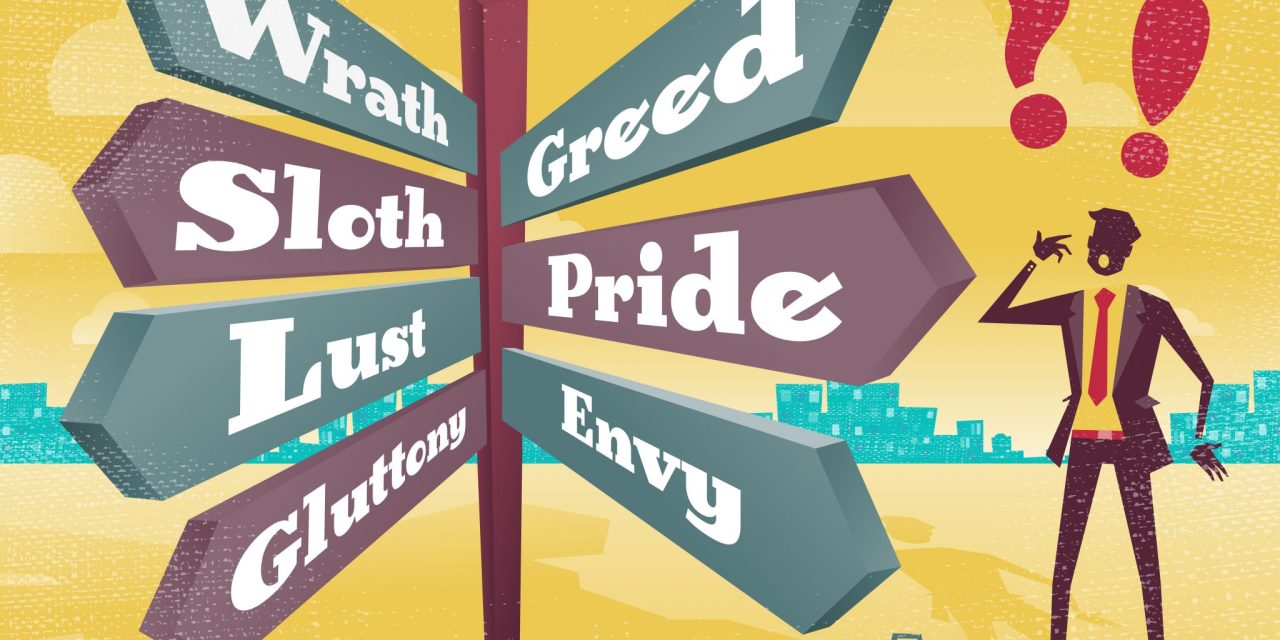In the realm of ethics, the concept of the ‘seven deadly sins’ holds a prominent place. Originally drawn from Christian teachings, these sins represent transgressions that can lead to spiritual degradation. While these sins – pride, greed, wrath, envy, lust, gluttony, and sloth – may seem far removed from the business world, they can serve as powerful metaphors for behaviour that can lead to business failure or harm to stakeholders. Let’s look at the seven deadly sins of business from the Zimbabwean point of view.
Pride: The Pitfall of Arrogance
In business, pride can manifest as an inflated sense of one’s abilities or the quality of one’s products or services. Such overconfidence can lead to ignoring valuable feedback, rejecting opportunities for improvement, or refusing to adapt to changing market conditions. Companies risk alienating customers and employees when they become too proud to admit their shortcomings or mistakes. On the other hand, a culture of humility promotes continuous learning, improvement, and growth.
Greed: The Danger of Over-Ambition
Greed in business can lead to an unquenchable thirst for profit, often at the expense of ethics, employee welfare, and customer satisfaction. Companies that prioritize profit above all else can engage in unethical practices, exploit employees, or deceive customers. Moreover, a short-term vision driven by greed can compromise long-term sustainability. A complaint that has become very frequent in Zimbabwe. Balancing ambition with ethical principles can ensure growth and profitability are achieved responsibly and sustainably.
Wrath: The Peril of Unchecked Aggression
In the corporate world, wrath can surface as excessive anger or aggression, creating toxic work environments and damaging relationships with partners and customers. Leaders who respond to criticism or competition with unchecked aggression may drive away talent and discourage open communication. We’ve also seen reactions to customers that border on violence. Patience, respect, and professionalism are essential for maintaining a positive, collaborative business environment.
Envy: The Trap of Unhealthy Competition
Envy can drive companies to base their strategies on what their competitors are doing rather than focusing on their own strengths, strategies, and customers. While competitive analysis is an important part of strategic planning, an excessive focus on competitors can lead to a neglect of a company’s unique value proposition. Ultimately businesses forget to focus on the customer when they spend too much time on competitors. Think of the business owners who cry for support when a competitor gets recognition instead of improving their offer. A successful business strategy emphasizes differentiation and delivering superior value to customers.
Lust: The Risk of Uncontrolled Growth
In business, lust often represents an insatiable desire for rapid expansion or acquisition. While growth is a common objective for businesses, uncontrolled or poorly managed growth can lead to overworked employees, compromised product or service quality, and financial instability. Many business people in Zimbabwe are guilty of this. There is a tendency to start businesses because other people are succeeding in them or to rush to start a second business, thus taking resources from the first. Balancing growth aspirations with strategic planning and capacity considerations is key to sustainable expansion.
Gluttony: The Hazard of Wastefulness
Gluttony can take the form of excessive consumption or wasteful use of resources. This could range from financial mismanagement to overconsumption of resources to trying to do too many things simultaneously, stretching the organization too thin. We can see this through a lack of reinvestment in the things that make the business tick. The ultimate goal of a business should be customer satisfaction, but a lack of reinvestment in the systems that bring about customer satisfaction will hurt the business. On the other hand, a culture of efficiency and sustainability promotes the optimal use of resources, contributing to economic and environmental sustainability.
Sloth: The Snare of Complacency
Sloth in business can equate to a lack of innovation, reluctance to update outdated practices, or motivation to improve. In Zimbabwe’s dynamic business environment, complacency can be a death sentence for any organization. When business owners sit back and become entitled, it takes one swift change to wipe them out completely. Encouraging creativity, fostering a culture of continuous learning, and staying abreast of technological advancements can keep a company competitive and innovative.
While the seven deadly sins may be ancient, they still hold relevant lessons for modern businesses. By avoiding these metaphorical ‘sins,’ companies can foster ethical cultures, promote sustainable practices, and ultimately achieve long-term success. It’s important to remember that businesses thrive through profit-making and creating value for all stakeholders, including employees, customers, and the broader community. Recognizing and mitigating these ‘sins’ can guide businesses towards responsible and sustainable growth, contributing positively to the larger economic and social ecosystem.









Insightful